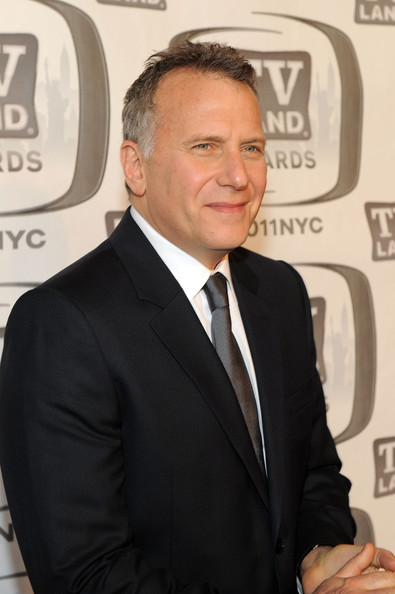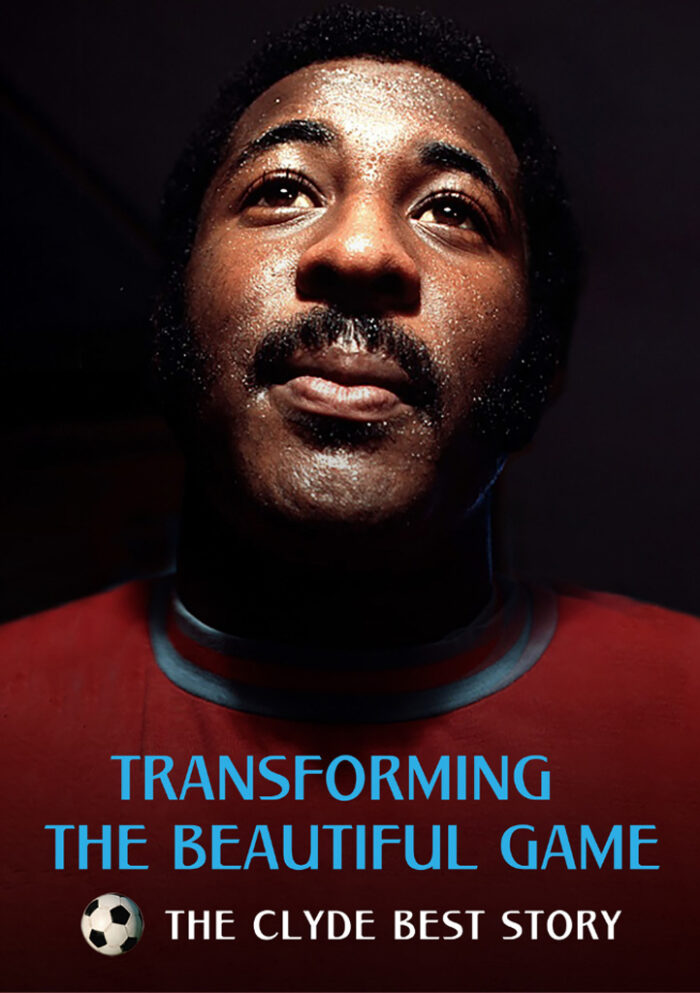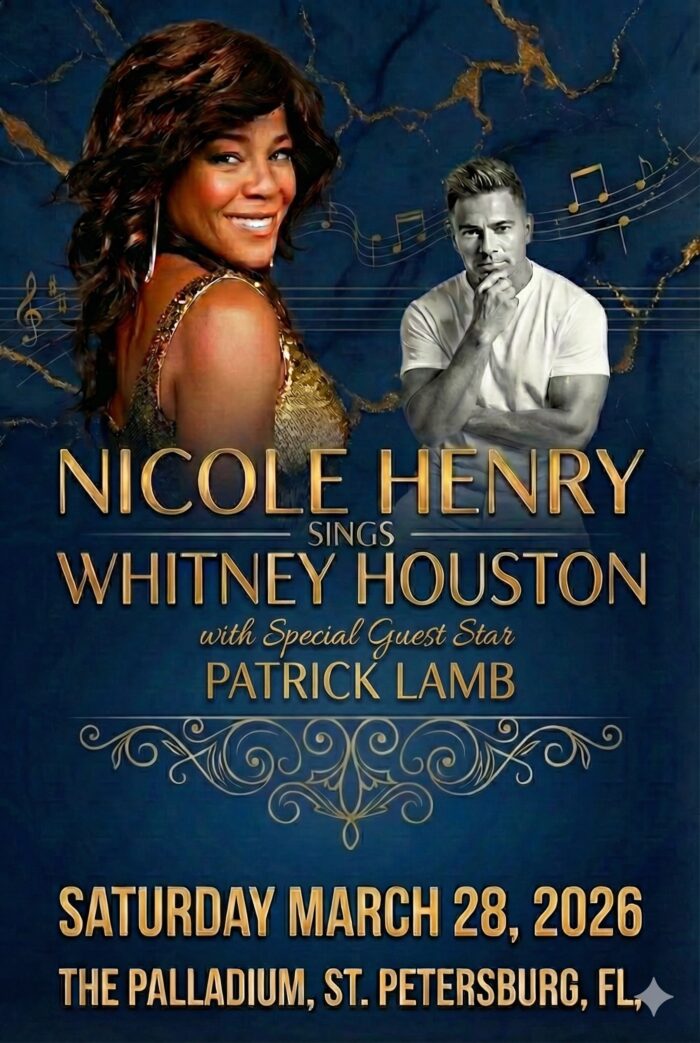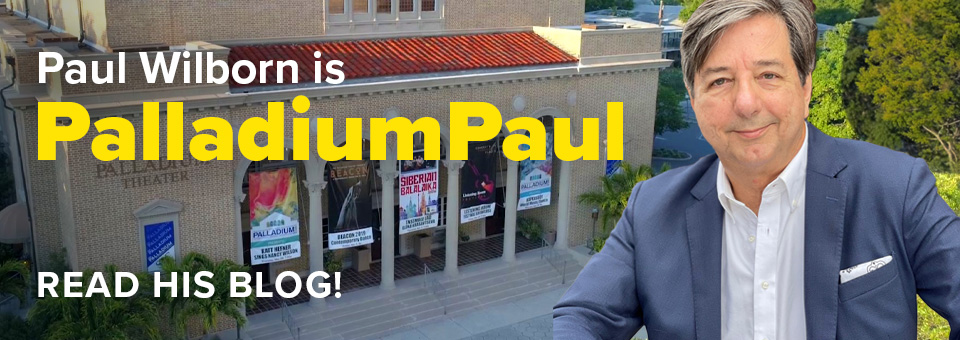We’ve got a great weekend of shows coming up. Friday night it’s the most acclaimed and interesting Beatles tribute act in the biz – The Fab Faux, which brings the band to life without the Beatle wigs.
The group includes Will Lee (bassist for Paul Shaffer’s CBS Orchestra on the Late Show With David Letterman) who has played with all four of the Beatles, Jimmy Vivino (Music Director/Guitarist for Conan), Rich Pagano, Frank Agnello and Jack Petruzelli. These five fabulous musicians have united to bring the Beatles’ musical magic to life.
Then, on Saturday, the comic, TV star and film actor, Paul Reiser, brings his stand-up show to the Palladium.
To get you in the mood, we’ve picked up an excerpt from an interview with Reiser that appeared in the Tampa Bay Times. Tickets for both shows will be on sale at the Palladium on the day of the show.
You can read the entire article by following this link:
By Jimmy Geurts, Times Staff Writer
When Paul Reiser performs at the Palladium in St. Petersburg on Saturday, it will be on the eve of a film’s he in competing for Best Picture at the Oscars.

Paul Reiser
The comedian and actor plays Miles Teller’s father in Whiplash, which was nominated for five Oscars, as a loving contrast to J.K. Simmons’ ruthless music teacher. He also has a role in the NFL drama Concussion, which just set an awards season-friendly Christmas release date.
It’s something of a repeat performance for Reiser, who started as a comic before getting roles in films like Diner and Aliens and starring in the sitcom Mad About You. Now that he’s started stand-up again, he’s once again acting in movies and television, including the FX comedy Married.
In an interview, Reiser discussed returning to stand-up, acting in Whiplash and playing older roles on television. Here are excerpts.
What was the process like getting back into stand-up after a long hiatus from it?
Somebody said, “Is it like riding a bike?” And I said, “It’s like pushing a bike uphill with your eye.” So it’s not quite riding a bike; it’s a little harder and more painful. What was fun about it for me was how similar it felt to when I first started in college doing it. For as much as the world has changed and technology has changed, the practice of doing stand-up has not changed. It comes down to you writing something down on a piece of paper, practicing it and saying it in front of strangers. It gets better the more you do it and you learn more. It’s very low-tech. It was fun for me to be reliving the exact process I started with 35 years ago.
In those years off, once in a while I would host a charity event or something and I would be onstage, but it wasn’t the same thing. One night I just had a really great time — I was doing some charity thing, it was really fun — it just rang a bell like, Why aren’t I doing this? I really like this. Usually you do three or four minutes when you’re emceeing and hosting and then you bring up the chairman or whoever it is, and you go home. This particular night was just fun and it rang a bell like, Oh my God, I really miss doing this. So I literally called up a local comedy club out here in L.A. and said, “Can I come on down?”
And at first I had five minutes and it was fine and they laughed and the audiences were happy to see me, they were very nice. But I could do tell those muscles had atrophied and it was a good six months to a solid year before I felt I was able to go out and work and actually do a full show and have people buy tickets. So it was about a year, year and half of that, and then really just the last two years or so being out on the road. When I say “out on the road,” I’ve been doing it really civilized, like every other weekend I’ll go out for a night or two.
You’ll be performing in St. Petersburg the same weekend as the Oscars, where Whiplash is up for several awards. How did you get involved with that film?
Very traditionally. My agent knew of the film and submitted me and the director (Damien Chazelle) said, “Hey, that’s a good idea.” We met and he said, “Yes, I think you’d be great.” … He had done a short version of the movie to get funding for it, so I had already seen it. I thought he did a short and it was so good that he said, “Hey, let’s fatten this up into a full feature.” But that wasn’t the case — in fact, he had written the full feature script and then took out like a little chunk, 15 minutes’ worth of stuff, and shot that in able to raise the funds to shoot it the way he wanted to.
It’s such a miraculously well-done thing, the movie. Everybody who saw it was moved and surprised because nobody expected anything. It doesn’t sound like it’s going to get you. “What, there’s a kid, he’s taking drum lessons and the teacher’s mean? That doesn’t sound like a good movie.” But everybody is so good, the script is so good, the editing is so good, that it’s breathtaking. I would hear from actor friends of mine like, “Oh man, the movie’s so great, it’s a shame it’s not getting any recognition.” So when the Oscar nominations came out, I was really delighted. Because I knew J.K. Simmons would be nominated and I thought maybe something else, editing. But Best Picture is really, really cool for a tiny, tiny movie like this.
Did the director know you had gone to school for music?
No, he didn’t know anything about that, and it wouldn’t have mattered. No, I don’t know what he knew of me other than he thought that it would work being Miles Tiller’s dad. He wrote it really beautifully — he wrote it very simply and there’s a lot of stuff in between the lines. I hear people saying they see the movie and want to call their father afterwards because his dad gets a rough deal here in the film.
What was it like working with Teller, who’s from here?
That’s right, he’s from Jersey to Florida. He’s great. He’s so down to earth and not one of these guys that seems caught up, he’s not on the set in character … I think he’s kind of been underappreciated because there’s so much attention on J.K., who is fantastic, but Miles was no less impressive. Maybe J.K.’s role is more attention-grabbing because it’s so broad. But Miles was not only great, but he also plays the drums — 95 percent of that is him.
You’ll be in another movie soon, Concussion.
I have a little part in that, but it’s a great ensemble thing … Will Smith plays this Nigerian-born doctor who happened to be working as a pathologist in Pittsburgh, and in the coroner’s office, he came across Mike Webster, came across a dead Steeler. He didn’t know anything about football, he didn’t know who Webster was, he just noticed this strange thing in the brain and he naively thought the NFL would want to know about it.
I play this doctor, this real-life guy, the medical trainer on the Jets, and for some reason, even though he had no expertise in brain work, he was the NFL’s guy to head the commission. You could read it either way as to who’s innocent and who’s guilty, what their position was. But it’s a very emotional piece and it’s a great cast, it was really fun — Alec Baldwin and Will Smith and Albert Brooks.
What was it like returning to another television romantic comedy on Married?
Well, it’s very much not a sitcom. When I was offered the role, I said, “Well, what is it?” They said, “Well, it’s a show, it’s called Married.” My first thought was, “I think I did that show already; didn’t I do that for seven years?” Then I met with the creator of the show, who had a very different take in mind. It’s very different, but also my role was very different — I was the older guy to these guys, which was kind of fun now, to get to be the guy who’s been around the block. What was also really fun for me, to be honest, was to just be playing in somebody else’s sandbox, not having to worry about the whole show or the series. It was like, “Oh, just show up, you’ve written these beautiful scenes, I just do these scenes and then I go home? I don’t know what that’s like.”
We’re going to do another season of that, and this summer, they’re picking up this show Red Oaks, an Amazon series … It’s another thing where I get to play a role I wouldn’t have done 20 years ago. I’m the sort of older, established head honcho at the country club. It’s centered on this kid in his 20s who’s going to college and who’s having one last job before his folks want him to get serious about life, and he’s working as a tennis pro at this country club. And it’s in the ’80s, and it’s very funny to see. I don’t think of the ’80s as that long ago, but it looks it and sounds it and feels it.
So I’ve been getting to do all these fun projects and movies. I did a movie with Kevin Bacon called 6 Miranda Drive, which was really fun because he and I met doing Diner 30 years ago and we hadn’t worked together since. It has been strange — the minute I started doing comedy again, all these great roles came up. And it feels like when I started, stand-up was my focus and all the acting jobs, as great as they were, they were icing on the cake to me. But I always felt like stand-up was my first calling. Though ironically, I didn’t do it for 20 years, and the minute I’ve been doing it again, all these opportunities came up.








Leave a Reply